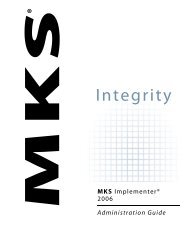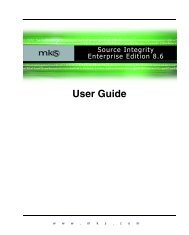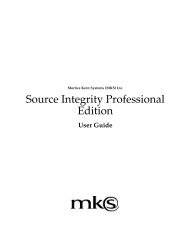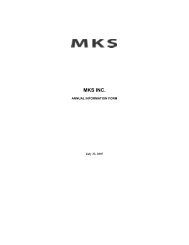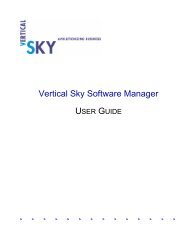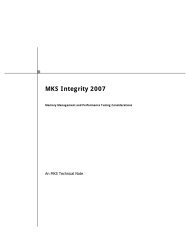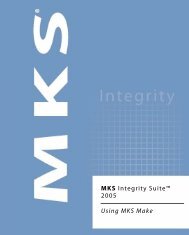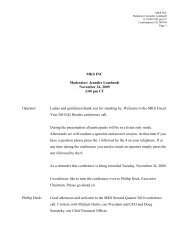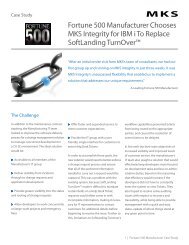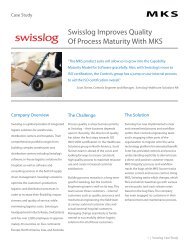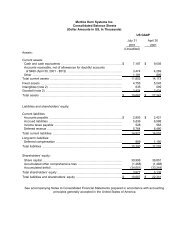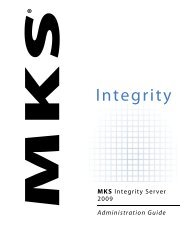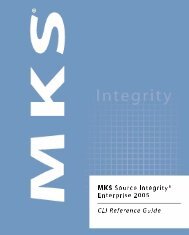Basics of the MKS Toolkit - Mks.com
Basics of the MKS Toolkit - Mks.com
Basics of the MKS Toolkit - Mks.com
Create successful ePaper yourself
Turn your PDF publications into a flip-book with our unique Google optimized e-Paper software.
Programming<br />
A number <strong>of</strong> record-keeping <strong>com</strong>mands are also helpful. For<br />
example, suppose you have a program that is split into several source<br />
files. For <strong>the</strong> sake <strong>of</strong> simplicity, we'll assume that <strong>the</strong> source files all<br />
have a .c extension and are all stored in <strong>the</strong> src directory.<br />
You will <strong>of</strong>ten want to find out which source files refer to a particular<br />
variable or function. You can do this simply with<br />
fgrep 'name' src/*.c<br />
This <strong>com</strong>mand checks all <strong>the</strong> appropriate files and displays lines that<br />
contain <strong>the</strong> given name. Each line is labelled with <strong>the</strong> name <strong>of</strong> <strong>the</strong> file<br />
where <strong>the</strong> line was found. This <strong>of</strong>fers a quick way to find <strong>the</strong> use <strong>of</strong> a<br />
function or data object in source files.<br />
As ano<strong>the</strong>r example <strong>of</strong> using record-keeping <strong>com</strong>mands, suppose<br />
that you are working on a large program and every few days you<br />
save all <strong>the</strong> source code for <strong>the</strong> program on a floppy disk (as a safety<br />
precaution). There are <strong>of</strong>ten times when you want to <strong>com</strong>pare <strong>the</strong><br />
current versions <strong>of</strong> your source files to one <strong>of</strong> <strong>the</strong> saved versions, to<br />
find out what changes have been made between <strong>the</strong> two.<br />
diff oldfile newfile<br />
prints out all <strong>the</strong> differences between two versions <strong>of</strong> a file, making<br />
<strong>com</strong>parisons easy.<br />
The sum <strong>com</strong>mand gives a checksum for each file. If applied to two<br />
versions <strong>of</strong> what was at one time <strong>the</strong> same file, sum <strong>of</strong>fers a<br />
convenient way to tell if <strong>the</strong> files are still <strong>the</strong> same. It does not,<br />
however, indicate what <strong>the</strong> differences are.<br />
The find, head, and tail <strong>com</strong>mands also have obvious applications<br />
to programming. For example, suppose you are looking for a<br />
particular Basic source program but can't remember where it is stored<br />
on your disk.<br />
find / -name '*.bas'<br />
searches all <strong>the</strong> directories on your current device and displays <strong>the</strong><br />
names <strong>of</strong> all files with <strong>the</strong> .bas extension.<br />
28 <strong>MKS</strong> <strong>Toolkit</strong>



